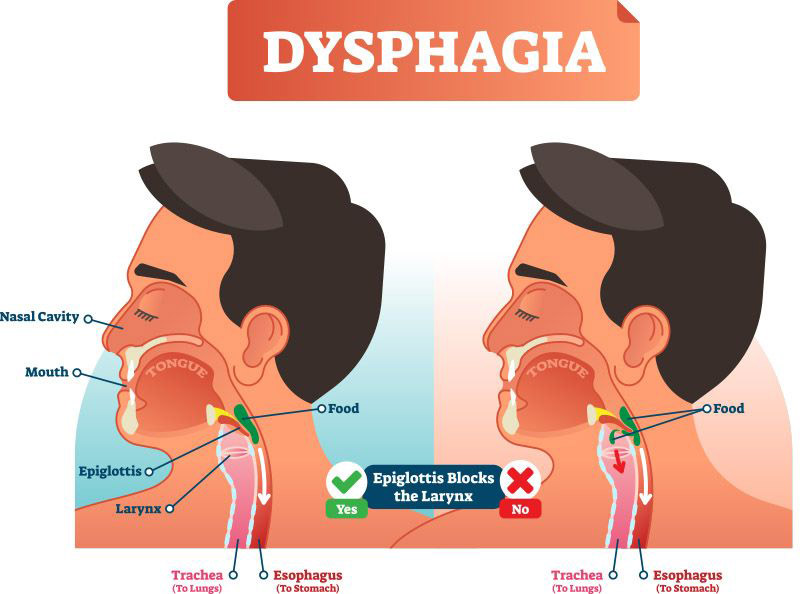
Dysphagia is difficulty swallowing, causing the sensation of improper passage of food or liquid from your mouth to stomach. People often describe it as food getting "stuck" or "not going down right" after they swallow. Dysphagia is typically classified as oropharyngeal or esophageal based on the location of the problem. Oropharyngeal dysphagia is a defect in the chewing and initial swallowing that takes place as food is transferred from the mouth, pass the tonsils and the beginning portion of the esophagus. This discomfort comes within one second of the swallowing process and is accompanied by coughing, choking, drooling, or nasal regurgitation. Esophageal dysphagia describes a defect in the swallow once that passes from the back of the mouth, into the esophagus and finally the stomach. Discomfort is typically felt in the throat, chest, or upper stomach and may be accompanied by vomiting. It is important to notice if you have difficulty with solids, liquids, or both.Read More
There are many causes of dysphagia, which include neuromuscular disorders, structural problems, and motility disorders. Common neuromuscular problems include stroke, Parkinson's Disease, Lou Gehrig's Disease, hypothyroidism, myasthenia gravis, polio, and polymyositis. Common structural problems are cancer, inflammation (viral or post radiation), enlarged thyroid gland, enlarged lymph nodes, foreign objects, Schatzki rings, esophageal webs, strictures, or complications from previous surgeries. Motility disorders may be due to scleroderma, spasms, sphincter dysfunction (e.g. achalashia), or infections.
Dysphagia is evaluated by taking a detailed history in combination with imaging tests and procedures including a modified barium swallow study, esophagram, esophoduodenoscopy (EGD), and/or manometry.
For more information please call 504-988-5110
